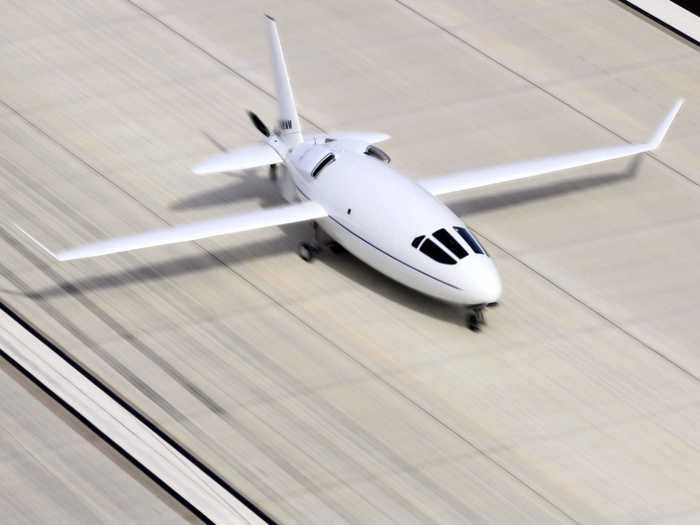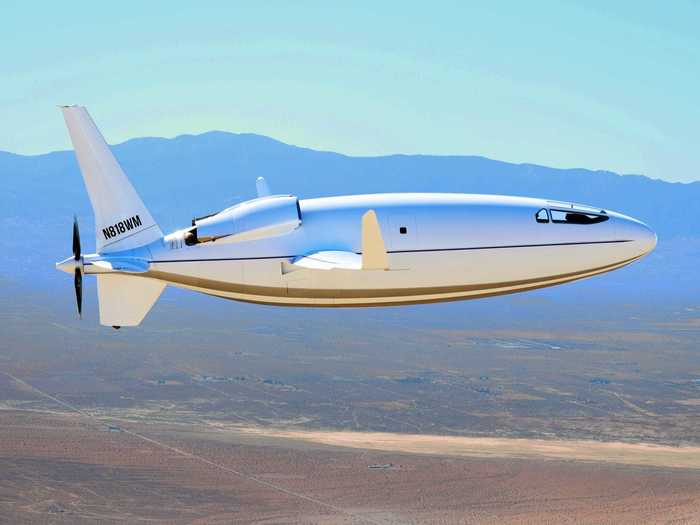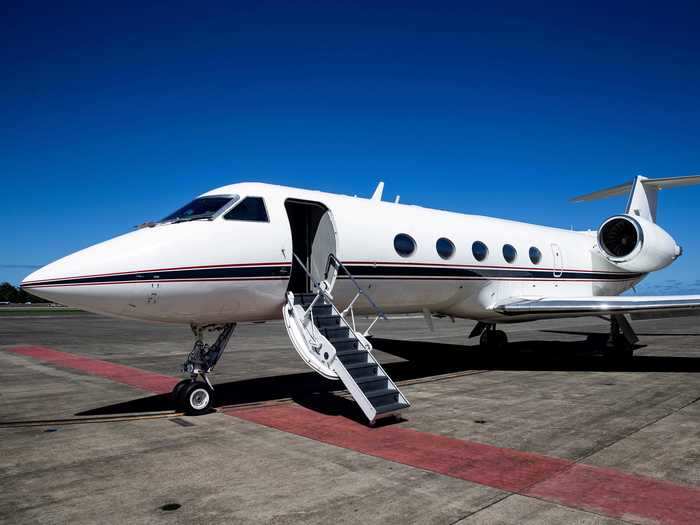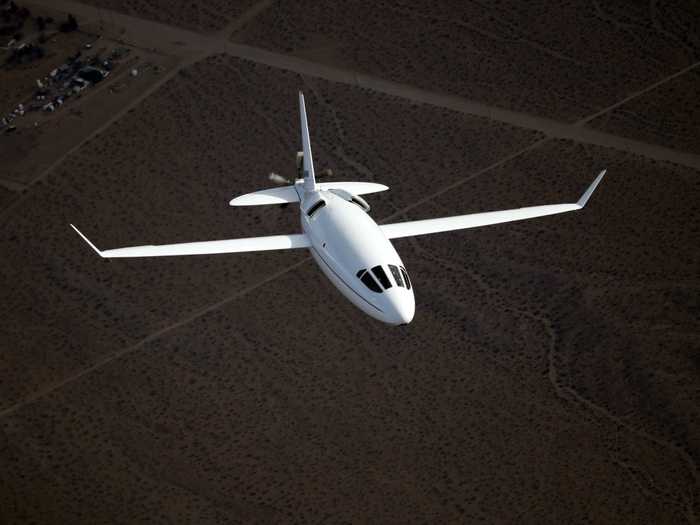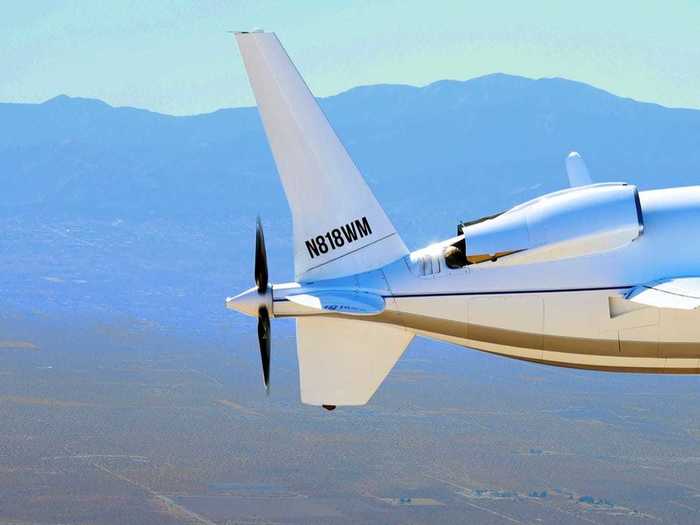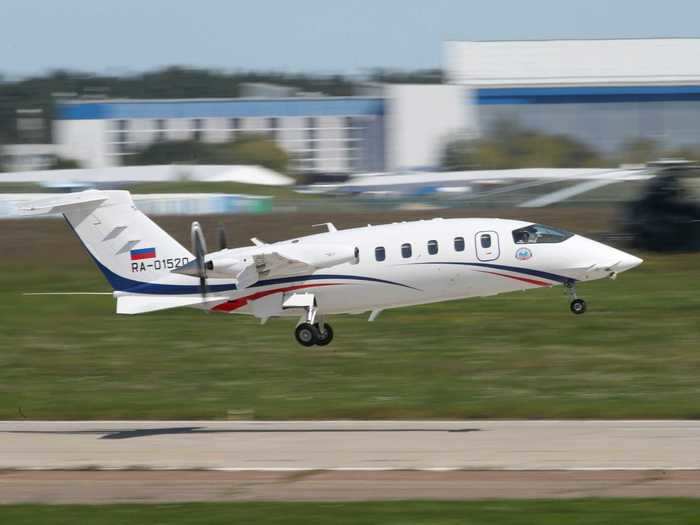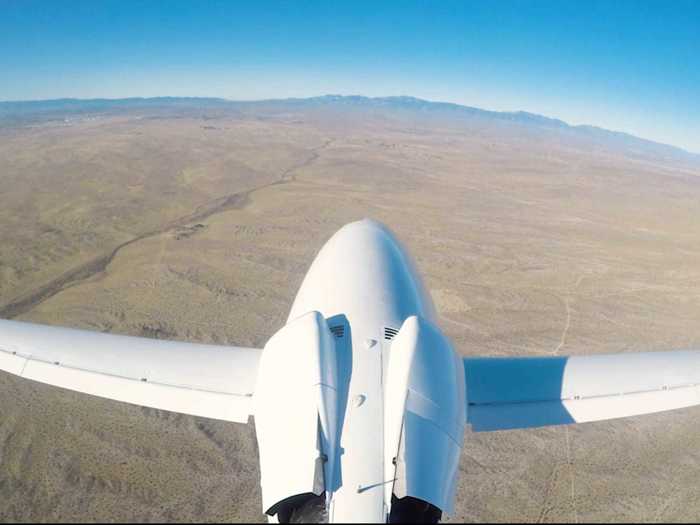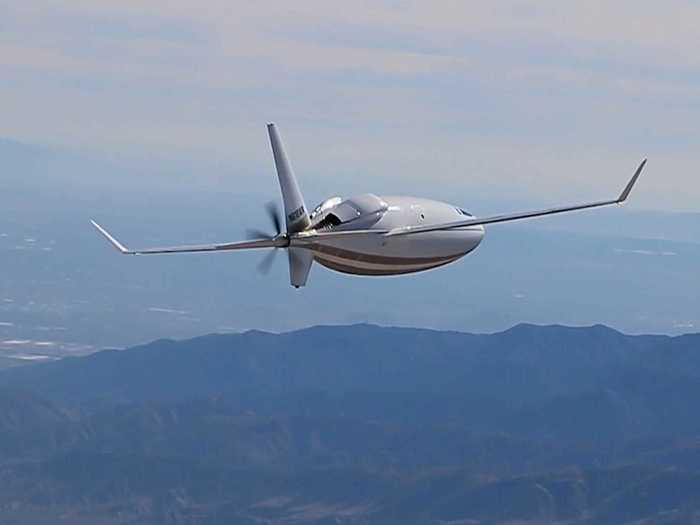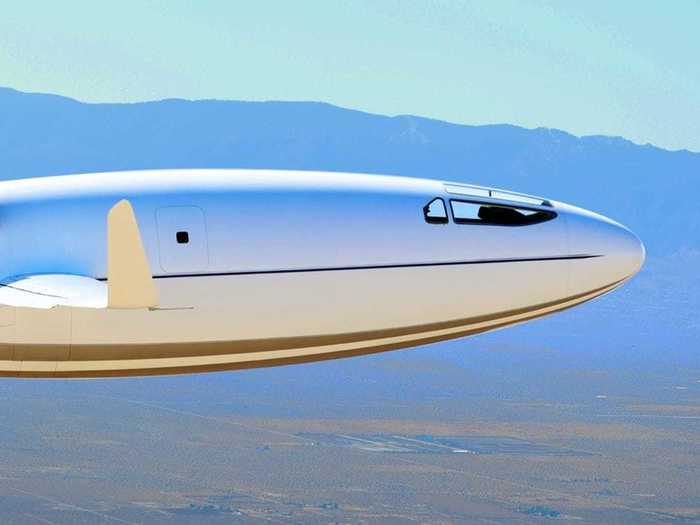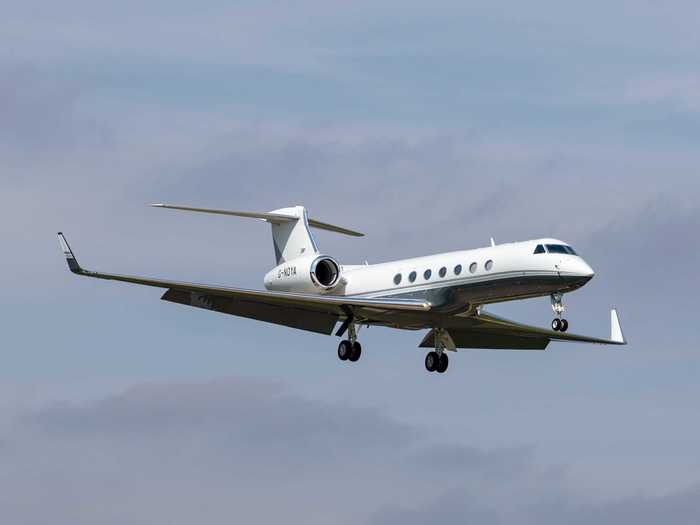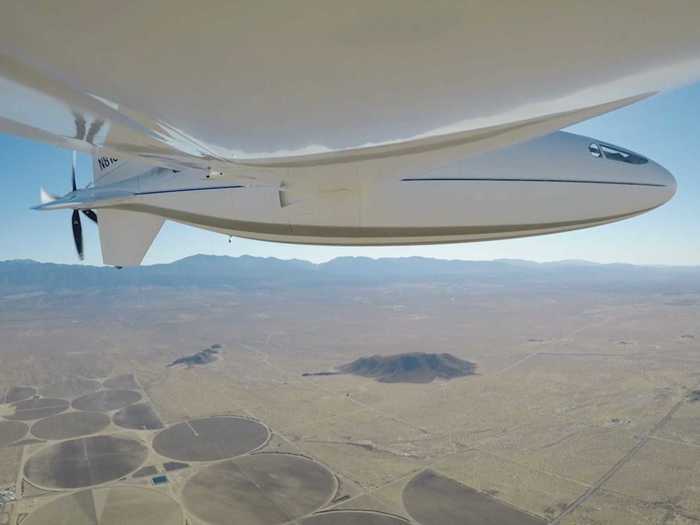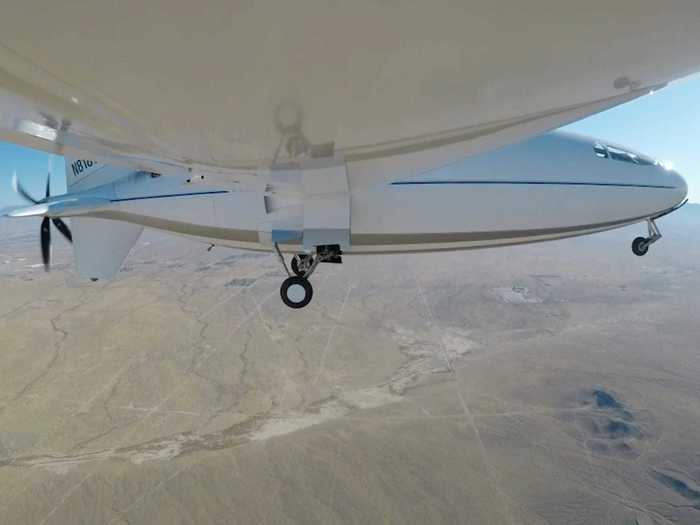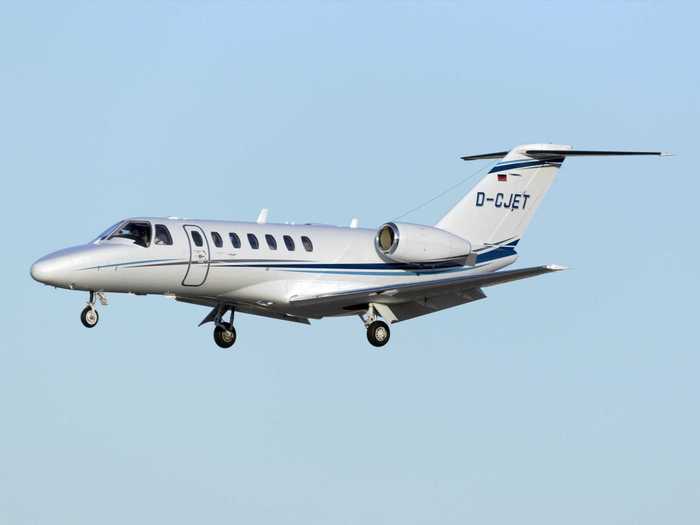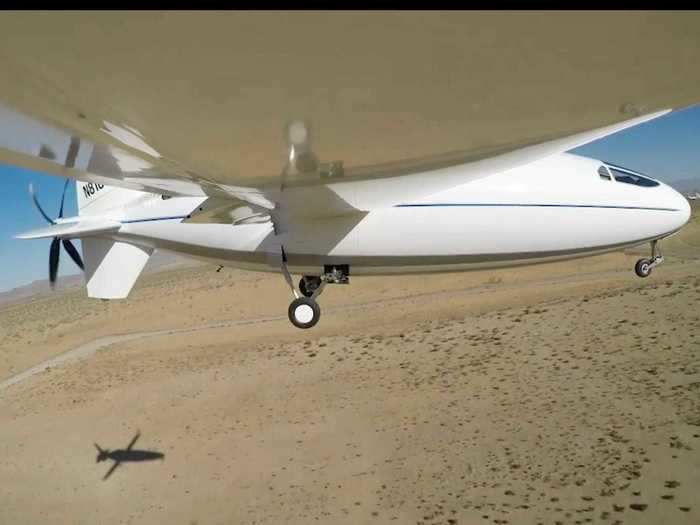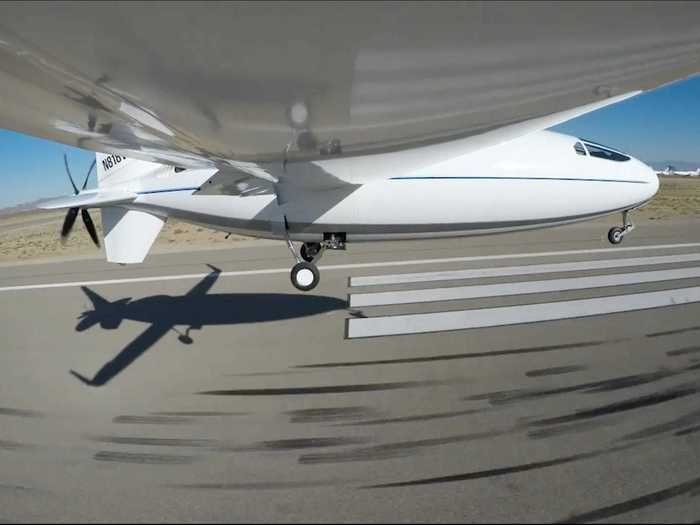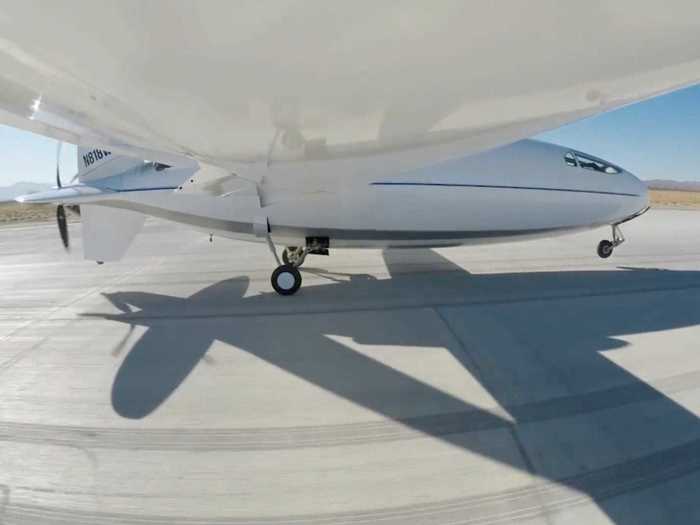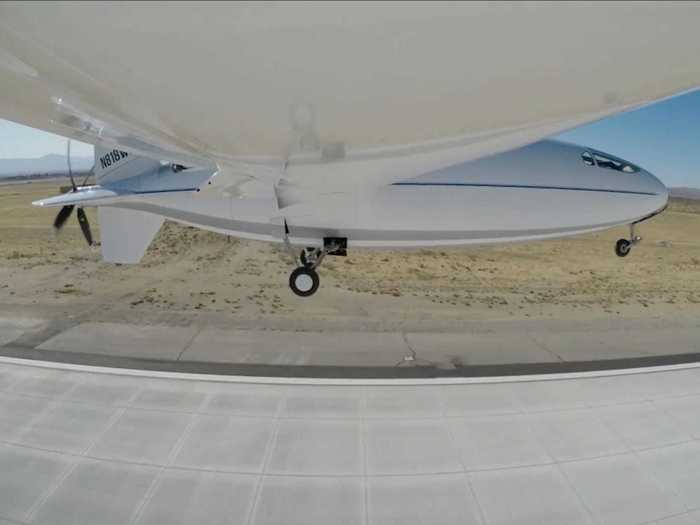A rendering of Otto Aviation's new Celera 500L.Otto Aviation
- Otto Aviation just pulled the curtain back on its newest plane, the Celera 500L.
- The new private aviation aircraft can fly up to 4,500 nautical miles at speeds of 450 miles per hour while only burning one gallon for every 18 to 25 miles.
- It's slated to be one of the cheapest private aircraft to operate costing only $328 per hour.
Looks can be deceptive in aviation, especially with the new Celera 500L.
Otto Aviation's newest aircraft doesn't look like your average private plane but that's exactly why it's set to disrupt the industry and make private flying more accessible to the masses — if it can live up to its promises. The Celera 500L boasts incredible performance capabilities that are nearly unbelievable upon the first review and make it unlike even the most efficient aircraft currently roaming the skies.
The six-seater plane has an intercontinental range of 4,500 nautical miles at speeds of 450 miles per hour in cruise flight. And despite having the performance more akin to a multi-million-dollar Gulfstream, the Celera 500L is only powered by one engine that's made from aluminum.
If you can get past its looks, the Celera 500L is a great deal for private flyers at a cost of only $328 per hour, which would make it among the cheapest private charter aircraft on the market.
The timing couldn't be any more ideal with private flying surging in popularity among the wealthy who are choosing to pay for safety by chartering aircraft when they travel. With the Celera 500L boasting operating costs of only $328 per hour, it could give even middle-class flyers a safer alternative to the airlines without breaking the bank.
Take a closer look at Otto Aviation's Celera 500L.
The Celera 500L is a single-engine propeller aircraft with an intriguing design unlike most aircraft currently flying.
A model of Otto Aviation's new Celera 500L.
Otto Aviation
The fuselage of the new plane is shaped almost like the hull of an airship, taking advantage of laminar flow to aid the flow of air.
A rendering of Otto Aviation's new Celera 500L.
Otto Aviation
It's similar to another private aircraft, the Italian Piaggio P.180 Avanti.
A Piaggio P.180 Avanti turboprop aircraft.
Fabrizio Gandolfo/SOPA Images/LightRocket/Getty
Looks aside, the aerodynamically friendly design helps give the Celera 500L and astounding range of 4,500 nautical miles on a single tank of fuel.
A rendering of Otto Aviation's new Celera 500L.
Otto Aviation
A 4,500-nautical mile range gives the Celera 500L the ability to cross the US non-stop flight but also cross oceans with ease. New York to London is only 3,000 nautical miles, for example, with city pairs like New York-Istanbul, Geneva-Johannesburg, and Sydney-Honolulu theoretically accessible with the aircraft.
A rendering of Otto Aviation's new Celera 500L.
Otto Aviation
That kind of range on a private aircraft is typically reserved for the likes of Gulfstreams.
A Gulfstream private jet aircraft.
Sgt Alex Kouns/DVIDS/US Marine Corps
Whether or not aviation regulators will let a single-engine aircraft fly extended overwater routes, however, is another story.
A rendering of Otto Aviation's new Celera 500L.
Otto Aviation
Driving the aircraft is a rear-facing propeller located at the back of the aircraft, pushing the aircraft instead of pulling it.
A rendering of Otto Aviation's new Celera 500L.
Otto Aviation
The rear-facing propeller is also a staple of the Avanti.
A Piaggio P.180 Avanti turboprop aircraft.
Marina Lystseva/TASS/ Getty
Powering the aircraft is a Red A03 all-aluminum engine built by Germany's Red Aircraft, costing only $170,000 and capable of being fueled by jet fuel or biodiesel.
Otto Aviation's new Celera 500L during a test flight.
Otto Aviation
And even with one engine, the Celera 500L can achieve a top speed of 450 miles per hour at cruise altitude.
Otto Aviation's new Celera 500L during a test flight.
Otto Aviation
Enhancing aerodynamic efficiency even further is the use of winglets on the ends of each wing that further improve airflow and reduce drag.
A rendering of Otto Aviation's new Celera 500L.
Otto Aviation
They're a common feature on newer aircraft as the aerodynamic efficiency they provide helps lower fuel burn and increase range.
A Gulfstream G550 private jet.
Ryan Fletcher / Shutterstock.com
The Celera 500L only burns one gallon for every 18 to 25 miles compared to one to five miles per gallon on traditional aircraft.
Otto Aviation's new Celera 500L during a test flight.
Otto Aviation
Otto Aviation calls it "the most environmentally friendly airplane in its class."
Otto Aviation's new Celera 500L during a test flight.
Otto Aviation
Inside the plane, the fuselage design calls for a six-foot, two-inch tall cabin for passengers to easily stand up in. Six seats can be accommodated in the 500L, comparable to a light jet.
A rendering of Otto Aviation's new Celera 500L.
Otto Aviation
But seating capacity is about the only thing that makes it similar to a light jet as the designs and capabilities are markedly different.
A Cessna Citation CJ3 aircraft.
InsectWorld / Shutterstock.com
Otto Aviation completed 31 successful flights with the Celera 500L by the end of August using a full-scale prototype.
Otto Aviation's new Celera 500L during a test flight.
Otto Aviation
It's a major milestone for the 12-year-old company that sees its flagship one step closer to certification, expected in 2023.
Otto Aviation's new Celera 500L during a test flight.
Otto Aviation
The company hopes the aircraft will democratize private aviation and make chartering the Celera 500L similar to buying a commercial airline ticket in terms of cost.
Otto Aviation's new Celera 500L during a test flight.
Otto Aviation
With an hourly rate of around $328 per hour, it's cheaper than nearly every private aircraft on the market.
Otto Aviation's new Celera 500L during a test flight.
Otto Aviation
The 500L is also only the beginning with Otto Aviation planning a larger model, the 1000L, after the launch of its first.
Otto Aviation's new Celera 500L during a test flight.
Otto Aviation

